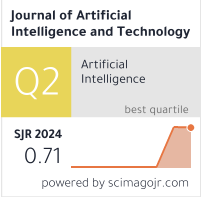Federated Learning Model of Optimized Neural Network Structures for Identification and Classification of Cardiovascular Diseases at Multi-Hospital Patients
DOI:
https://doi.org/10.37965/jait.2025.0713Keywords:
electrocardiogram, FedAvg, genetic algorithm, Massachusetts Institute of Technology-Beth Israel Hospital arrhythmia database;, optimized artificial neural network, optimized convolution neural network, optimized recurrent neural network, particle swarm optimizationAbstract
This research presents a privacy-preserving federated deep learning framework for Electrocardiogram (ECG) classification, enhancing cardiovascular disease diagnosis while maintaining patient data security. Traditional deep learning models require centralized data collection, raising privacy concerns. Our approach trains models locally at individual healthcare centers, preventing raw data sharing. We utilize optimized deep learning architectures, including Optimized Convolutional Neural Networks (CNN), Optimized Recurrent Neural Networks, and Optimized Artificial Neural Networks trained using Genetic Algorithm and Particle Swarm Optimization. Each center trains multiple models, selecting the best-performing architecture dynamically for federated training. Model weights are aggregated using federated averaging (FedAvg) and redistributed to improve generalization. Our hierarchical model selection and aggregation reduce redundancy, enhance scalability, and address challenges like non-IID data distribution and communication overhead. By sharing only model weights instead of raw ECG data, the framework ensures data privacy and compliance with regulations while facilitating multi-institutional collaboration. Experimental results are compared with different architectures and the results demonstrate that Optimized CNN consistently outperforms other architectures, making it an ideal choice for federated ECG classification. This outperforming model is considered as the training model of the individual centers. The trained model weights of individual centers are shared with the data center where FedAverage weights are computed. This research advances privacy-preserving deep learning by optimizing both model performance and security, enabling large-scale, real-world deployment in healthcare systems.
Published
How to Cite
Issue
Section
License
Copyright (c) 2025 Authors

This work is licensed under a Creative Commons Attribution 4.0 International License.





